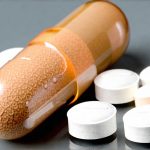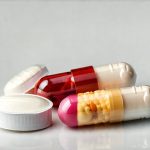Bladder infections, often referred to as cystitis, are incredibly common – particularly among women – and can range from mildly uncomfortable to severely debilitating. Understanding what exacerbates these infections, and more importantly, what to actively avoid while you’re experiencing one, is crucial for both symptom management and a quicker recovery. Many people instinctively focus on treating the infection with antibiotics (as prescribed by a healthcare professional), but supporting your body’s natural healing processes – and preventing further irritation – requires conscious choices about lifestyle and habits during this vulnerable time. Ignoring these preventative measures can prolong discomfort, increase the risk of complications like kidney infections, and even contribute to antibiotic resistance over time.
The goal isn’t simply to endure a bladder infection; it’s to minimize its impact on your daily life and facilitate efficient healing. This involves recognizing that certain substances and activities actively hinder recovery, potentially worsening inflammation and discomfort. This article will explore those specific pitfalls, offering practical guidance on how to navigate a bladder infection with greater comfort and care. It’s vital to remember that this information is for general knowledge and does not substitute professional medical advice; always consult your doctor or healthcare provider for diagnosis and treatment.
Dietary Considerations During a Bladder Infection
Diet plays a significant role in both triggering and managing bladder infections. Certain foods and beverages can directly irritate the bladder lining, intensifying symptoms like frequency, urgency, and pain. Conversely, others can support hydration and potentially soothe inflammation. One of the most important aspects is understanding the concept of bladder irritants – substances that commonly provoke a reaction in an already sensitive bladder. These aren’t necessarily harmful to everyone, but during an infection, even mild irritation can be profoundly uncomfortable.
Avoiding these common culprits is key: caffeine (found in coffee, tea, and many sodas), alcohol, spicy foods, acidic fruits like citrus (oranges, grapefruit, lemons), and tomato-based products. These substances can all increase bladder sensitivity and contribute to the sensation of burning or urgency. Furthermore, artificial sweeteners have been linked to bladder irritation for some individuals, so minimizing their intake is also advisable. Focus instead on hydration with water – this dilutes urine, helping to flush out bacteria – and bland foods that are easy on the digestive system.
A temporary dietary adjustment doesn’t need to be overly restrictive; it’s about making informed choices during a period of vulnerability. Think of it as giving your bladder a chance to rest and recover without additional stress. While you shouldn’t completely eliminate all potentially irritating foods forever, reducing or eliminating them during the acute phase can dramatically improve comfort levels. It’s also worth noting that individual sensitivities vary – what irritates one person may not affect another – so paying attention to your body’s response is crucial.
Things to Avoid Regarding Hydration & Beverages
Proper hydration is paramount when dealing with a bladder infection, but what you drink matters just as much as how much. While increasing fluid intake is essential for flushing out bacteria and preventing dehydration, certain beverages can actively worsen symptoms.
- Caffeinated Drinks: As mentioned earlier, caffeine is a potent bladder irritant. This includes coffee, black tea, green tea, energy drinks, and even some sodas.
- Alcohol: Alcohol has a diuretic effect, meaning it causes your body to lose more fluids. This concentrates urine, making it more irritating to the bladder. It also compromises the immune system, hindering recovery.
- Sugary Drinks: Excessive sugar can promote bacterial growth and suppress the immune system. Limit sugary sodas, juices, and sweetened beverages.
- Carbonated Beverages: The bubbles in carbonated drinks can cause bloating and pressure on the bladder, increasing urgency and discomfort.
Instead of these problematic options, focus on water, herbal teas (specifically those without caffeine), and diluted cranberry juice (although its effectiveness is still debated, it may help prevent bacteria from adhering to the bladder wall – always check with your doctor before consuming large amounts). Remember, aim for pale yellow urine as an indicator of adequate hydration.
Avoiding Irritating Foods
Beyond beverages, several food groups commonly contribute to bladder irritation during an infection. Identifying and avoiding these can significantly alleviate symptoms.
- Acidic Fruits: Citrus fruits (oranges, grapefruit, lemons, limes), pineapples, and tomatoes are high in acidity, which can irritate the bladder lining.
- Spicy Foods: Capsaicin, the compound that gives chili peppers their heat, is a known bladder irritant. Avoid spicy dishes, hot sauces, and heavily seasoned foods.
- Artificial Sweeteners: Some artificial sweeteners have been linked to increased bladder sensitivity in certain individuals. Minimize intake of diet sodas and sugar-free products.
- Processed Foods: Highly processed foods often contain additives and preservatives that can exacerbate inflammation and potentially irritate the bladder.
Focusing on bland, easily digestible foods is recommended during an infection. Options include plain rice, toast, bananas, applesauce, and boiled potatoes. As your symptoms subside, you can gradually reintroduce other foods, paying attention to how your body reacts. Foods to Avoid During Bladder Flare-Ups provides more in-depth guidance on dietary choices during flare-ups.
The Role of Dairy & Gluten
The impact of dairy and gluten on bladder infections is a more nuanced topic. While not universally irritating, some individuals find that these food groups exacerbate their symptoms.
- Dairy: For some people, dairy products can increase mucus production, which may contribute to urinary discomfort. If you suspect dairy is aggravating your symptoms, try eliminating it temporarily to see if there’s an improvement.
- Gluten: Gluten sensitivity or intolerance can cause inflammation throughout the body, potentially impacting bladder health. While not directly linked to bladder infections, reducing gluten intake might benefit those with underlying sensitivities.
These aren’t universal avoidances; they are considerations for individuals who suspect a connection between these food groups and their symptoms. Keeping a food diary and noting any correlations between what you eat and how you feel can be incredibly helpful in identifying personal triggers.
Lifestyle & Hygiene Habits to Modify
Beyond diet, certain lifestyle and hygiene practices can significantly influence the course of a bladder infection. Often, seemingly harmless habits can unintentionally worsen symptoms or contribute to recurrence. Understanding these pitfalls is vital for effective management and prevention. Poor hygiene practices – specifically regarding perineal care – are a common contributing factor, particularly in women due to the proximity of the urethra to the anus.
Avoiding harsh soaps, douches, and scented feminine hygiene products is paramount. These disrupt the natural bacterial balance in the vaginal area, making it easier for bacteria to travel to the bladder. Instead, gentle cleansing with water or mild, unscented soap is recommended. Similarly, tight-fitting clothing and synthetic underwear can trap moisture, creating a breeding ground for bacteria. Opt for breathable cotton underwear and loose-fitting clothing whenever possible.
Furthermore, delaying urination – holding it in for extended periods – can also contribute to infections by allowing bacteria to multiply in the bladder. Regular emptying of the bladder prevents stagnation and helps flush out potential pathogens. Finally, sexual activity can sometimes introduce bacteria into the urethra; urinating immediately after intercourse is a recommended preventative measure. These seemingly small adjustments to daily habits can collectively make a substantial difference in both preventing and managing bladder infections. What to Avoid During Intimacy With UTIs in Women offers more detailed information about sexual health during UTIs.
Remember, this isn’t about adopting a restrictive lifestyle indefinitely; it’s about making informed choices during an infection – and as part of a preventative strategy – to protect your urinary health. Taking proactive steps to minimize irritation and promote hygiene is crucial for long-term well-being. If you are experiencing recurring infections or have concerns about underlying issues, consider discussing what to expect during a uroflowmetry procedure with your doctor.





















